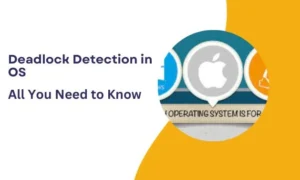Table of Contents
ToggleIntroduction
Segmentation Fault In C is a dreaded occurrence that can be compared to malevolent ghosts haunting the minds of programmers.
These pesky faults lurk in the shadows of code, causing sudden and inexplicable crashes that can leave even experienced developers bewildered.
In this blog, we will delve into the intricacies of Segmentation Fault In C, unraveling their origins, identifying their telltale signs, and most importantly, learning effective tactics to track them down and eradicate them once and for all.
At its core, a segmentation fault is a type of error that occurs when a program tries to access memory that it does not have permission for.
It is often referred to as an access violation or a memory access error.
This can happen due to various reasons such as attempting to read from or write to an invalid memory address or trying to execute instructions from a non-executable memory region.
Read About: Difference Between Oop and Pop
Understanding Segmentation Fault in C

A segmentation fault in C is a type of error that occurs when a program attempts to access memory that is not allocated or available for its use.
This error is commonly seen in programming languages like Segmentation Fault In C, where the programmer is responsible for managing memory manually.
In such languages, it is not uncommon for segmentation faults to occur due to mistakes in memory allocation or deallocation.
Essentially, the operating system detects this invalid memory access and interrupts the program, resulting in a segmentation fault.
This error can be particularly problematic as it can cause the program to crash or behave unpredictably, making it difficult to identify and fix the underlying issue.
Therefore, understanding how segmentation faults occur and how they can be prevented is crucial in writing efficient and reliable code.
Also Read: Functions Of E Commerce
Common Segmentation Fault In C Scenarios

Let’s delve into some common scenarios that often lead to Segmentation Fault In C programming.
Dangling Pointers:
A dangling pointer is a pointer that continues to point to a memory location after its content has been deallocated. Accessing such a pointer can result in undefined behavior, often manifesting as a segmentation fault in C.
c
int *ptr = malloc(sizeof(int));
free(ptr);
*ptr = 42; // Segmentation fault!
Uninitialized Pointers:
Using pointers that have not been properly initialized is a classic source of Segmentation Fault In C. Accessing the content of an uninitialized pointer is like opening a door without knowing what’s behind it.
c
Copy code
int *ptr;
*ptr = 42; // Segmentation fault!
Buffer Overflows:
As mentioned earlier, writing beyond the bounds of an array or buffer can lead to segmentation faults. This often occurs when using unsafe functions like strcpy without proper bounds checking.
c
char buffer[5];
strcpy(buffer, “Overflow”); // Segmentation fault!
Stack Overflow:
Recursive functions without proper termination conditions or excessive local variable allocation can lead to a stack overflow, resulting in a segmentation fault.
c
void recursiveFunction() {
recursiveFunction(); // Stack overflow!
}
Accessing Freed Memory:
Forgetting to update or reassign pointers after freeing memory can lead to attempts to access memory that is no longer valid, causing segmentation faults.
c
int *arr = malloc(sizeof(int) * 5);
free(arr);
arr[0] = 10; // Segmentation fault!
Read-Only Memory Access:
Attempting to modify read-only memory, such as string literals, can result in segmentation faults. Ensure that you are not trying to modify constant data.
c
char *str = “Read only”;
str[0] = ‘W’; // Segmentation fault!
Misusing Function Pointers:
Incorrect usage of function pointers, such as invoking a function through a null or uninitialized function pointer, can lead to segmentation faults.
c
void (*funcPtr)();
funcPtr(); // Segmentation fault!
Incorrect Format Specifiers in printf/scanf:
Providing incorrect format specifiers in functions like printf and scanf can result in mismatched data types, leading to undefined behavior and potential segmentation faults.
c
int value;
printf(“%s”, value); // Segmentation fault!
Understanding these common scenarios and adopting defensive programming practices can go a long way in preventing segmentation faults and ensuring the robustness of your C programs.
How to Fix Segmentation Faults?

Fixing Segmentation Fault In C requires a systematic approach to identify and address the root causes of the issue. Here are some steps and strategies to help you fix segmentation faults:
Use Debugging Tools:
Employing debugging tools like GDB (GNU Debugger) can be immensely helpful. Compile your code with debugging information and use GDB to step through your program, inspect variables, and identify the point where the segmentation fault occurs.
bash
gcc -g -o my_program my_program.c
gdb ./my_program
Check for NULL Pointers:
Ensure that all pointers are properly initialized before use, and avoid dereferencing NULL pointers. If you dynamically allocate memory, make sure the allocation was successful before accessing the memory.
Segmentation Fault In C
int *ptr = malloc(sizeof(int));
if (ptr != NULL) {
*ptr = 42;
} else {
// Handle allocation failure
}
Bounds Checking:
Be vigilant about array bounds to prevent buffer overflows. Use safer alternatives like strncpy instead of strcpy and always validate input sizes.
c
char buffer[5];
strncpy(buffer, “Safe”, sizeof(buffer) – 1); // Correct
Memory Deallocation:
Ensure that memory is deallocated properly and avoid accessing freed memory. Set pointers to
NULL after freeing to avoid dangling pointers.
c
int *arr = malloc(sizeof(int) * 5);
free(arr);
arr = NULL; // Prevents accessing freed memory
Stack Size and Recursion:
Check the size of your program’s stack, especially if using recursion. Increase the stack size if necessary or convert recursive functions to iterative to avoid stack overflow.
Read-Only Memory:
If you encounter issues with read-only memory, use character arrays for mutable strings or explicitly allocate writable memory.
c
char str[] = “Mutable”;
str[0] = ‘M’; // No Segmentation Fault In C
Function Pointers:
Ensure that function pointers are properly initialized before use and are not null. Verify that the function signature matches the expected type.
c
void (*funcPtr)() = &someFunction;
if (funcPtr != NULL) {
funcPtr();
}
Printf/Scanf Format Specifiers:
Double-check the format specifiers in printf and scanf to match the actual data types. Mismatched specifiers can lead to undefined behavior.
c
int value = 42;
printf(“%d”, value); // Correct
Static Analysis Tools:
Leverage static analysis tools like Clang or Valgrind to catch potential issues during compilation or runtime.
bash
clang –analyze my_program.c
valgrind ./my_program
Code Review and Peer Collaboration:
Conduct thorough code reviews and seek input from peers. A fresh pair of eyes may catch issues that went unnoticed during solo development.
By following these steps and adopting best practices, you can systematically identify and fix segmentation faults in your Segmentation Fault In C code, ensuring the stability and reliability of your programs.
Conclusion
In the realm of Segmentation Fault In C programming, segmentation faults are often viewed as daunting opponents.
These elusive errors can bring even the most experienced developers to their knees, causing frustration and delays in the development process.
However, with a strong understanding of their underlying causes and effective debugging techniques, these faults can be overcome.
By adopting good programming practices and equipping themselves with the necessary knowledge and tools, developers can confidently navigate through the maze of segmentation faults.
One of the main reasons why segmentation faults are considered formidable adversaries is due to their mysterious nature.
They occur when a program tries to access memory that it does not have permission to access.
This can happen for various reasons such as dereferencing null pointers, accessing uninitialized variables, or writing beyond the bounds of an array.
These errors often manifest as sudden crashes with no clear indication of where the problem lies.
Fortunately, there are several debugging techniques that developers can employ to unravel these puzzling faults.
Frequently Asked Questions (FAQs)
A segmentation fault (often called segfault) is a runtime error that occurs when a program attempts to access a restricted area of memory. It is a specific kind of error caused by memory access violations.
Segmentation faults can be caused by various factors, including dereferencing NULL or uninitialized pointers, buffer overflows, accessing freed memory, stack overflow, and misusing function pointers.
Use debugging tools like GDB to step through your code, inspect variables, and identify the point of failure. Compile your code with debugging information (-g flag) to facilitate debugging.
Dereferencing a NULL pointer means trying to access memory at address 0, which is typically restricted. Operating systems intervene and generate a segmentation fault to prevent unauthorized memory access.
Always perform bounds checking when working with arrays. Use functions like strncpy instead of strcpy to copy strings and validate input sizes to prevent buffer overflows.
A dangling pointer is a pointer that continues to point to a memory location after the memory has been deallocated. Accessing a dangling pointer can result in undefined behavior, often leading to segmentation faults.
After freeing memory using free(), set the pointer to NULL to prevent accessing freed memory. This helps avoid dangling pointers and segmentation faults caused by accessing invalid memory.
When the program’s stack size is exceeded, it results in a stack overflow. This can happen with recursive functions lacking proper termination conditions or excessive local variable allocation, leading to a segmentation fault.
Yes, attempting to modify read-only memory, such as string literals, can result in segmentation faults. Always use writable memory when modifications are necessary.
Tools like Clang or Valgrind perform static analysis to catch potential issues during compilation or runtime. They can help identify memory leaks, buffer overflows, and other vulnerabilities.



